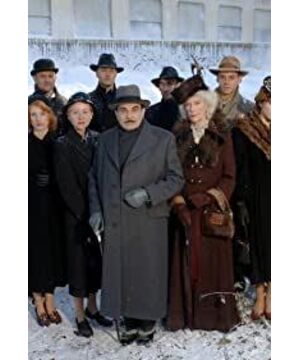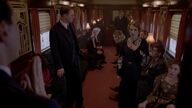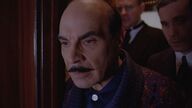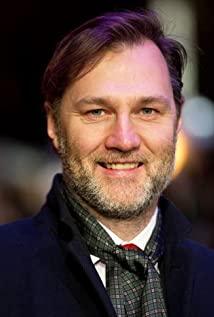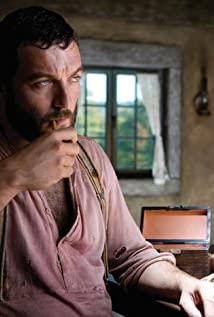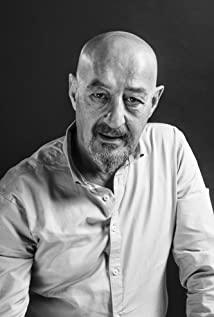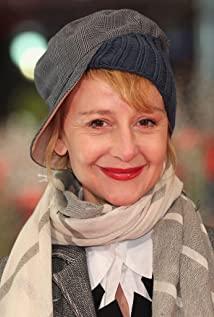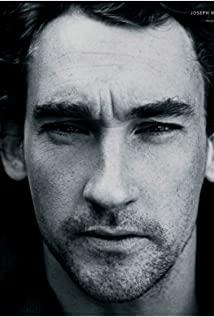Two things happened recently: first, there was a social news that a girl was criticized by various media for her selfishness and inaction when a friend was killed; second, the 2017 version of "Murder on the Orient Express" was released. Only then did I realize how good and shocking the 2010 version was.
So I wrote the following article under the 2017 edition, but because the protagonist of the article is the 10th edition, I posted it.
***
As a longtime Agatha Christie fan, the movie (2017) didn't buy me. The cast is strong and the acting is brilliant, but the storytelling is superficial, like a guessing game in costume. The fighting scene, the twelve people sitting in a row, the chase, the shooting, and the pale inner monologue of the great detective Poirot at the end all echo the aesthetic preferences of the audience at the end of 2017, but may also cover up the most soul-crushing part of the whole story. The subject, namely, justice, is how to be good.
In fact, when I was writing this article, the most hyped news in social news (to be precise, various We-Media) was the Jiang Ge Liu Xin case. Murder on the Orient Express is supposedly the best and most eloquent echo of the theme, but this new version fails to do so. Instead, the 2010 version resurfaced in my memory. That version did it.
It wasn't a movie that was cast on the big screen, but it lived up to the title "movie" in every way. In fact, this film, directed by BAFTA award-winning British director Philip Martin, projected on every home screen is probably my favorite of the entire twenty-year-long British drama Poirot. , because it moved me, alerted me, and shocked me. The most shocking thing is that it made me reflect:
Should the matter of "acting for the heavens" be done? why?
In the 2010 version, the film focused on why the "justice" was tortured, setting a serious and grim tone from the beginning. From the first shot, scene after scene, there are horrific situations about the trial: the young officer, under Poirot's stern reasoning and questioning, pulls the trigger and shoots himself; in Istanbul, people throw stones, "Execution" kills an adulterous woman. The above two scenes, which did not appear in the original book, set the stage for the following discussion: what is justice and what is barbarism?
The director of the 10th edition specifically emphasized in Poirot's dialogue that the "criminal gang" ceremony of twelve people, one knife, is a substitute for the jury and represents the solemn execution of the jury; it emphasizes that this murder symbolizes justice that cannot be achieved by law. . In the end, all the foreshadowing truths came to a climax, and the truth came out. In the cramped carriage, after Poirot completed his reasoning and analysis, he was so excited that he was trembling all over. He said loudly: "You have no right to represent the law!"
"We are good, civilized people, but evil has crossed the wall. We have sought the law, and we have asked it to do justice. And the law has failed us."
"No, no, we'll all be street savages by doing this! The rule of law must be held high, and if it falls—"
The camera captures Poirot's trembling hands. He held them high above his head.
"—you pick it up and lift it higher! Once it is destroyed, there is no shelter for all societies, all civilizations!"
The discussion doesn't stop there. That film also added a discussion of the Bible, God, and Christian culture—
"There is a higher justice than the law in this world," said the Swedish nun.
"Then you wait for God to execute judgment!"
"But when God doesn't do it, when the world is a hell for the living, when priests ask us to forgive those that shouldn't be forgiven," the nun continued, "Jesus said: 'Let those who have no sin throw the first A stone.' We are innocent, M. Poirot. I am innocent."
Physical difficulties, wind and snow, cold, cramped carriages, and moral dilemmas are the dilemmas that all the protagonists must face. For Poirot, it was more of an inquiry into the deepest self and belief. That night, Poirot left the carriage with a dignified expression and locked a group of "murderers" inside.
At the end of the film, in the snow, Poirot walks slowly through the crowd annotating him—thirteen passengers in groups of three and two—to the police who have heard the news. The background music clapped on the taut strings. Thirteen people looked at him in despair but expectantly. They saw that, with Poirot's mouth shut, the conductor hurriedly took out the conductor's uniform with one button off, and handed it to the police - which meant that Poirot finally decided to use a simple lie to spare the twelve The lynching of sinners, "innocent" people.
Schoolgirls, officers, counts and countesses, nuns, Russian nobles... They continued to pretend to be strangers, watching with tearful eyes as Poirot turned and walked into the blizzard. Poirot faced the wind and snow, his face was solemn, and his sixty-four-year-old face was full of pain and struggle. He held the cross tightly in his hand and stroked it. He betrayed his beliefs. He was in great pain.
There is no doubt that David Suchet is the Poirot that left the audience the deepest impression, not only about his appearance, but also his humor, gentleness, forbearance in anger, and coldness in dealing with things that make him shameless- - Suchet handled everything just right. At the end of Murder on the Orient Express, Suchet vividly portrays Poirot's inner struggle.
No one knew what Poirot had gone through that night, no one knew what persuaded him to give up the lofty laws he cherished and believed in, and spared those thirteen men. What really moved me was the pain he felt in making this choice. He knows what it means when the power of judgment and judgment is taken away from God and the law and given to the people. It means landslide, it means violence, it means "civilization has no refuge", it means barbarism.
If the execution of justice is appealed to the people and to the excitement of the crowd, how can we avoid becoming one of the gangsters who stoned the adulterous woman to death?
The loftiness of the law seems to Chinese people not to care. The crowd was so excited that people who dropped three exclamation marks after "I will kill" expressed not only anger, but also distrust of the system.
When chatting with a Christian friend who was studying philosophy in Germany about the Jiang Ge Liu Xin case, she said an interesting point: "With the concept of God, there is a concept of man, so that you won't be harsh on people."
"The Chinese are particularly fond of 'doing justice for heaven,'" she said. "This is the most objectionable thing in Christian culture. Judgment is the work of God."
China has never been a religious society, but a secular society, or a moral society. We have high requirements for ethics and morality, and sometimes even "inhuman". For most people, my friend's remark might be off-putting. but it
Today, when we watch these social news like watching a movie, and let ourselves be stirred up by the media and self-media like we are participating in an interactive game, and mentally smash the big axe into the crowd at the center of the stage, do we Need due diligence?
Some films will give you a hard blow when you are not prepared, and make you shiver. It seems that nothing earth-shattering happens, but it subverts your original expectations and makes you challenge your previous notions - nothing. Doubt, that year's "Murder on the Orient Express" did it.
View more about Murder on the Orient Express reviews


